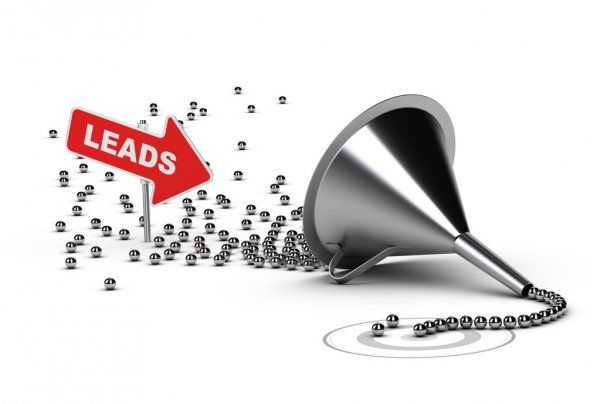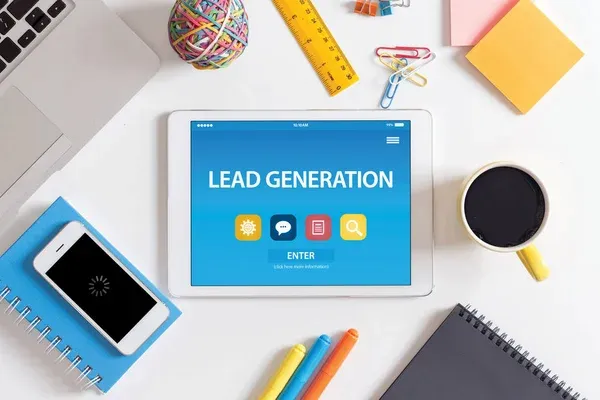
Qualified Leads vs. Unqualified Leads: What You Need to Know!

If you are a business owner, advertising manager, or marketing agency in charge of bringing traffic to your website and converting leads into sales, then you know how important a steady flow of leads is.
When generating leads for your business, it's important to know the difference between qualified and unqualified leads. Qualified leads have a higher chance of converting into customers, while unqualified leads are less likely to convert.
So how do you determine whether or not a lead is qualified? And what can you do to increase the chances of converting a lead into a customer? Let's find out!
Lead Qualification
Lead qualification is the key to effective lead generation. It is where your marketing efforts are focused on ensuring you will only receive leads that have the potential to turn into customers.
In other words, it's how sales and marketing teams separate the right leads from the wrong ones before they engage with them, which saves time and money in their campaigns.
That's why marketers and sales professionals must understand what qualifies as a qualified lead, how they can use the qualification criteria in their campaigns, and which type of lead conversion rates will benefit them the most.
What are Qualified Leads?
Qualified leads are exactly what you need to boost conversions and ultimately increase revenue!
These leads have been determined to be a good fit for a company's product or service as they have already shown interest in what you offer or meet specific criteria that make them good qualified prospects in your nurture campaign cycle.
This could be as simple as visiting your website, opening an email, or submitting a form on your site to request more information.
They can be categorized as sales-qualified leads or those who have a clear interest in buying your products or services and marketing-qualified leads that have already been through marketing campaigns.
Regardless of which, a great way to identify these qualified leads is by getting user details through form submissions or downloads, then using that data and retargeting them on social media channels.
If done right, you'll be able to build a relationship with these users, and they will most definitely become your customers!
What are Unqualified Leads?
Although they may seem promising at first, unqualified leads can turn into a huge mistake costing you time, money, and resources.
These leads could be bouncing from your website or leaving as soon as they land on it because what they see is irrelevant to what they're looking for! These may also include users who haven't even visited your site nor never found out about your brand before.
Unqualified leads haven't indicated interest strong enough for you to feel confident recommending them to your sales team. This could mean having downloaded an eBook but not following up on it or signing up for a quote without inquiring further.
These leads typically come from job board postings where it's not clear whether the person posting actually needs help with their problem or if they're looking for free advice.
What's the Difference Between the Two?
A lead could be considered as a high-quality or low-quality, depending on their behavior towards what you are offering, how much they understand it, and whether they have any questions about it at all.
At this stage of the game, there isn't anything wrong with either type because both hold potential for future conversions if handled correctly. Yet, they do have their great distinction.
Qualified leads, whether sales qualified lead or marketing qualified lead, are people who have already expressed interest in what you offer and want to know more information before buying it. They are most likely ready to buy, become a customer, learn more about your company, and so on.

In short, they are individuals who are/has:
- In the process of completing your sales cycle.
- Done their research
- Interest align with your products or services
- A clear and defined budget in mind
- Fewer chances or churning their accounts
An unqualified lead, on the other hand, is simply people who have shown some form of interest in your company but haven't actually made a commitment to buy anything yet.
You can convert unqualified leads later on, but there's no guarantee that this may happen. They seem interested at first glance but still need some convincing before making a purchase decision.
In short, they are those who:
- Has not been nurtured enough in the sales cycle,
- Doesn't know about what you offer and is uninterested.
- Cannot afford your products and services
- Has the possibility of canceling their accounts or membership.
Qualified leads are perfect for sending over to your sales team because they have shown interest in what you're offering, which means that they will most likely respond well when contacted by a member of your company.
Unqualified leads can be dangerous as they may not even be aware of having subscribed to an offer or service, leading them astray from their original purpose.
Both types should receive different treatment based on how much effort is required to turn them into paying customers or clients!
If it's too difficult for you or your marketing and sales teams to figure out all this information alone, our team at Appointment Setting UK will gladly assist you with this!
Appointment Setting UK is a company that can help you grow your business and generate leads by understanding the difference between qualified and unqualified leads.
We understand and know how to identify these types of leads so we can set appointments for you, maximizing your sales process and conversions.
Which One Should You Choose?
There's no hard rule choosing between the two since each business has different criteria for effectively generating revenue.
Some businesses have specific customer profiles or demographic targets in mind, while others simply want to attract as many new customers as possible.

In short, no two companies are alike in their prospective leads and lead generation strategies, so trying to define a one-size-fits-all definition of an "ideal" is difficult at best.
However, you should be able to tell the difference between whether or not someone is likely to make an offer by looking at several factors, including:
• Demographics (e.g., age group)
• Income level
• Geographic location (i.e., where do they live?)
As mentioned above, this list isn't exhaustive but rather points out some of the most essential qualifiers that set apart those who might buy from those who won't.
Yet, these points are significant distinctions in determining to qualify leads and whether your marketing efforts end up being successful or not.
A marketing strategy that focuses on unqualified leads emphasizing quick sales is only effective if you're looking to build a customer base as quickly as possible instead of long-term growth and sustainability.
Meanwhile, a strategy that focuses on generating qualified leads should focus on a long-term view that will help you grow your customer base and their lifetime value to your business.
It's all about finding the right balance between attracting new prospects and retaining existing ones based on their specific needs and desires at each stage in the buyer's journey.
This requires having an accurate picture of what motivates people to buy. Otherwise, you and your sales and marketing team will just end up your valuable time, money, and other resources on marketing activities that don't pay off in terms of revenue generation or valuable insights into our target audience.










